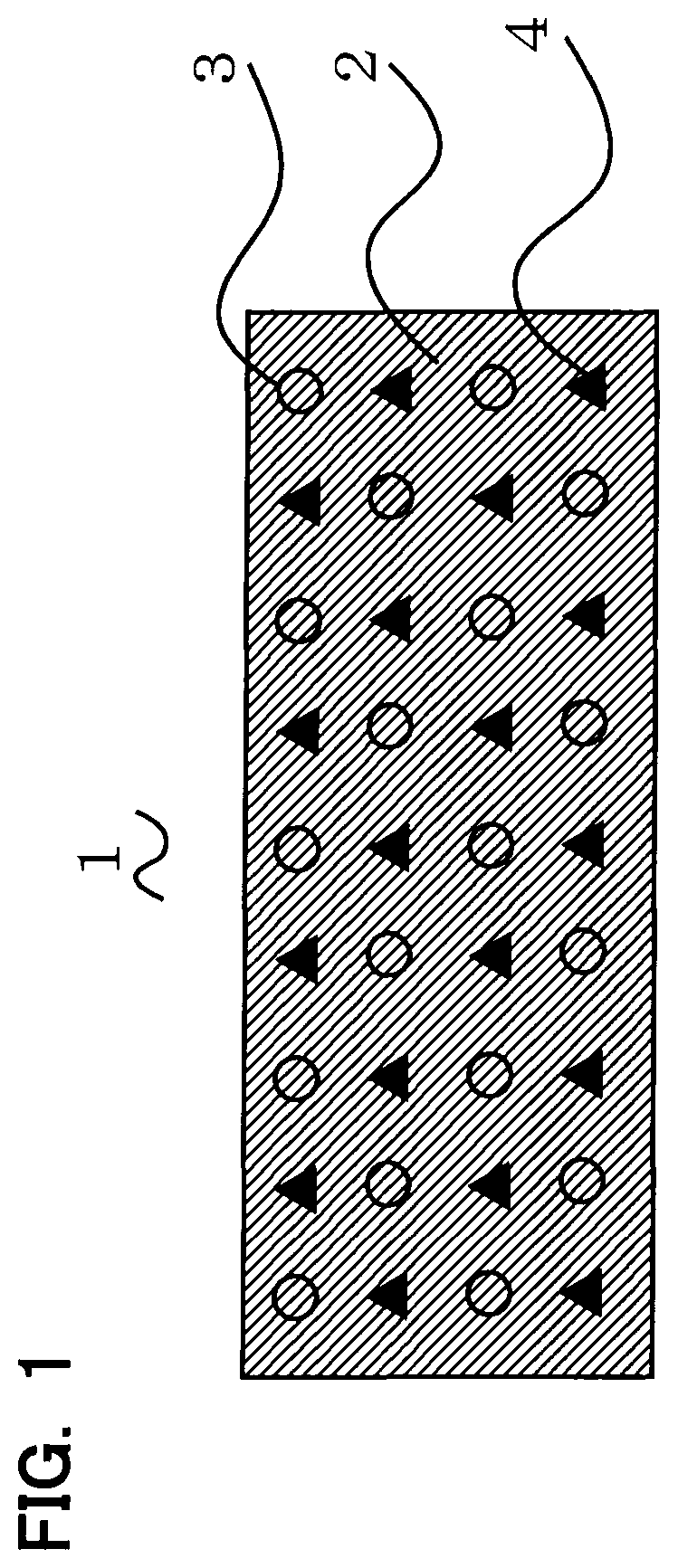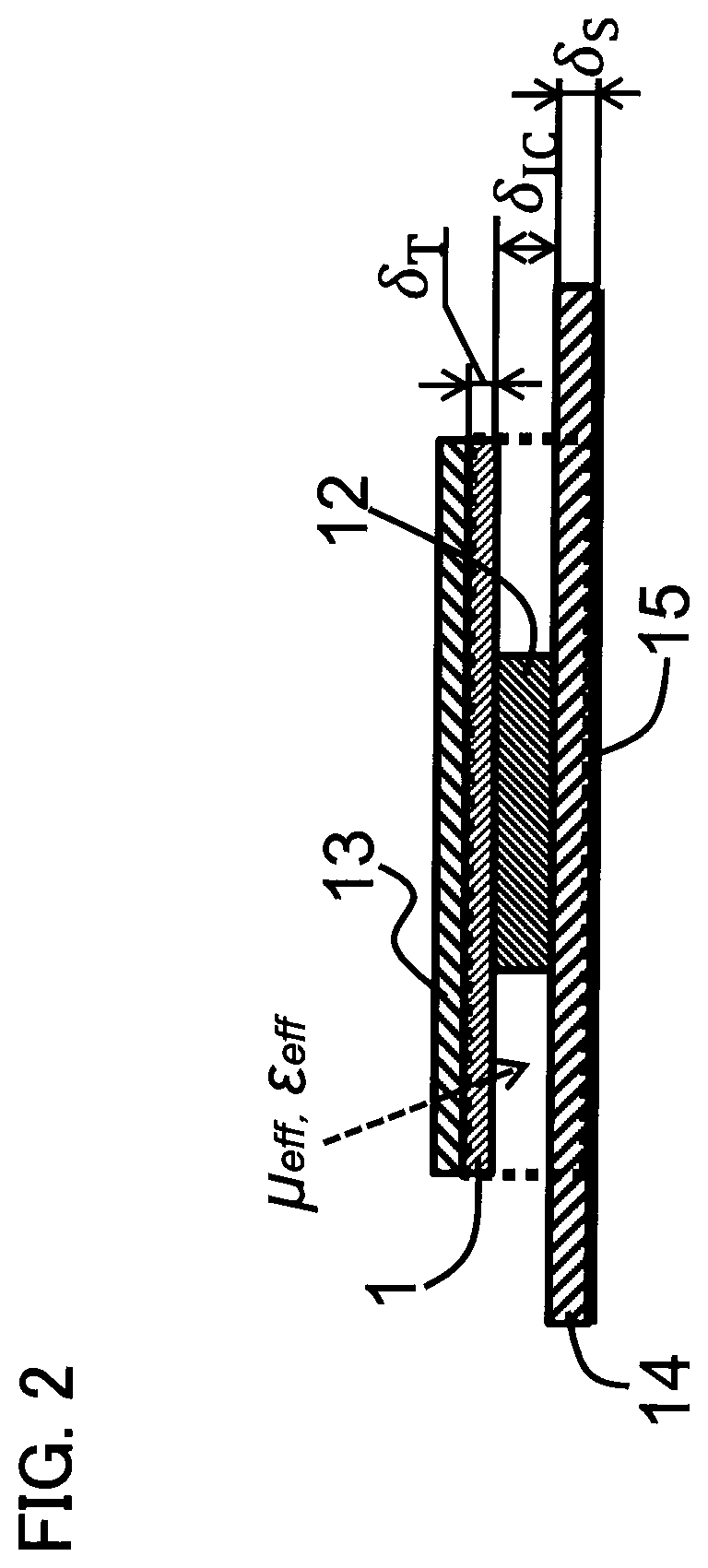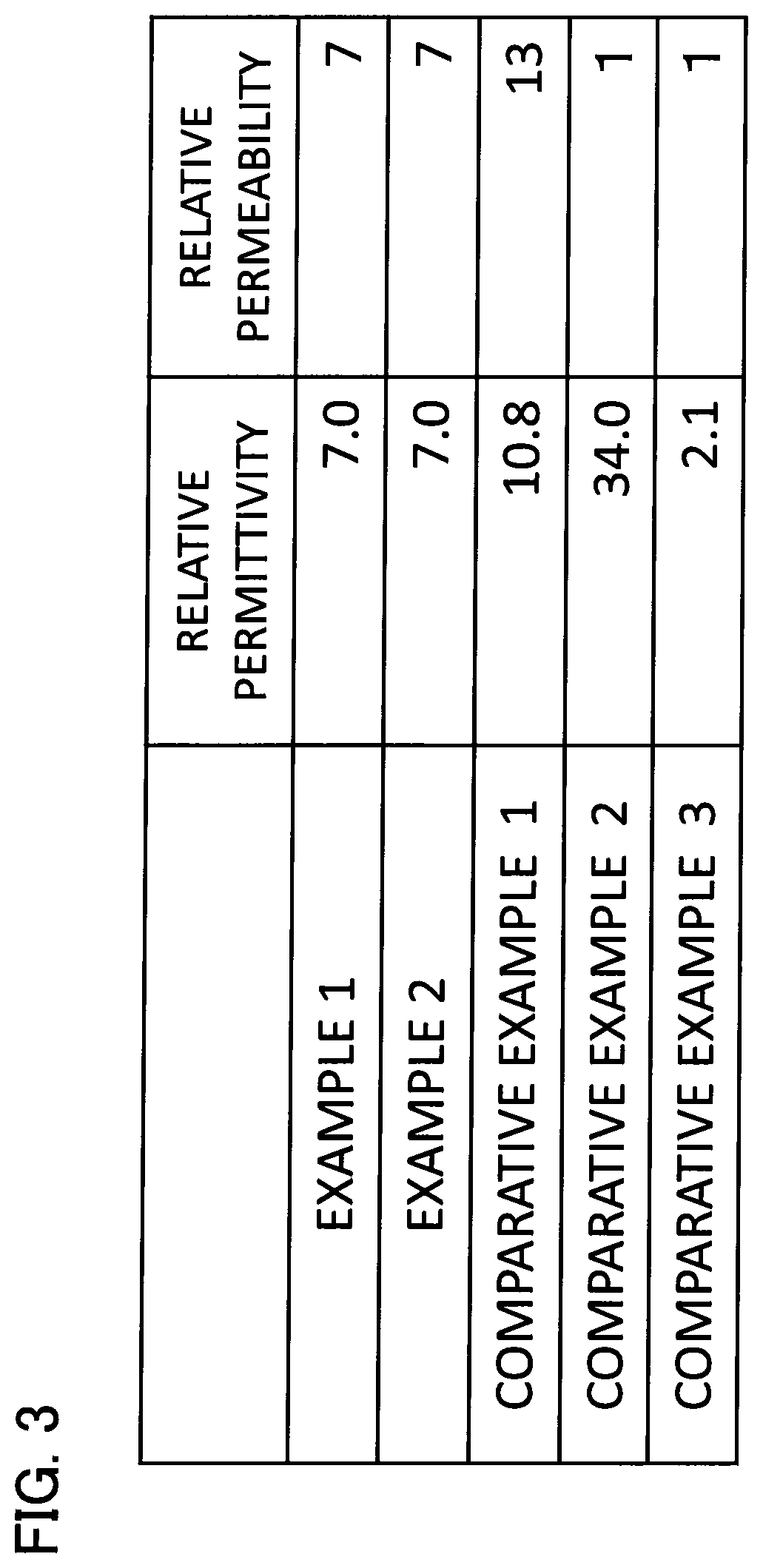Thermally conductive composition
a technology of conductive composition and heat dissipation device, which is applied in the direction of basic electric elements, magnetic/electric field screening, chemistry apparatus and processes, etc., can solve the problems of reducing the electrical capacitance between difficult to transfer the electromagnetic wave emitted by the electronic components such as ic or the like to the heat dissipation device, etc., and achieve the effect of reducing the electromagnetic wav
- Summary
- Abstract
- Description
- Claims
- Application Information
AI Technical Summary
Benefits of technology
Problems solved by technology
Method used
Image
Examples
example 1
[0042]General-use acrylic polymer was used as the base material 2 of the thermally conductive sheet 1 of Example 1. Further, perlite balloon was used as the permittivity adjusting filler 3, and two kinds of Ni—Zn soft ferrites with different particle sizes were used as the high permeability filler 4. The mixing ratio of each filler to the base material 2 was such that the mixing ratio of acrylic polymer was about 14 wt %, and that of perlite balloon was about 6 wt %, while that of the Ni—Zn soft ferrite with the larger particle size was about 27 wt %, and that of the Ni—Zn soft ferrite with the smaller particle size was about 53 wt %. To the thermally conductive sheet 1, furthermore, additives such as an antioxidant, a crosslinking agent, a multifunctional monomer and so on were added. The mixing ratio of each additive to the base material 2 was such that the mixing ratio of the antioxidant was about 0.05 wt %, and that of the crosslinking agent was about 0.14 wt % while that of the...
example 2
[0043]General-use acrylic polymer was used as the base material 2 of the thermally conductive sheet 1 of Example 2. Further, acrylic group balloon (product name: “Expancel 920 DE 40 d30” made by Akzo Nobel Pulp and Performance Chemicals AB), which is a kind of organic balloon, was used as the permittivity adjusting filler 3, and two kinds of Ni—Zn soft ferrites with different particle sizes were used as the high permeability filler 4. Further, to the thermally conductive sheet 1, inexpensive aluminum hydroxide was added as a thermally conductive filler, and magnesium hydroxide serving to increase the viscosity was added as a viscosity adjusting filler. The mixing ratio of each filler to the base material 2 was such that the mixing ratio of acrylic polymer was about 11 wt %, that of aluminum hydroxide was about 4 wt %, that of magnesium hydroxide was about 3 wt %, and that of acrylic group balloon was about 0.3 wt %, while that of the Ni—Zn soft ferrite with the larger particle size ...
modified examples
[0071]It is to be noted that the present invention is not limited to the above-described embodiment, and various modifications are possible within the spirit and scope of the present invention. Modified examples of the present invention will be described below.
PUM
| Property | Measurement | Unit |
|---|---|---|
| relative permittivity | aaaaa | aaaaa |
| relative permittivity | aaaaa | aaaaa |
| frequency | aaaaa | aaaaa |
Abstract
Description
Claims
Application Information
 Login to View More
Login to View More - R&D
- Intellectual Property
- Life Sciences
- Materials
- Tech Scout
- Unparalleled Data Quality
- Higher Quality Content
- 60% Fewer Hallucinations
Browse by: Latest US Patents, China's latest patents, Technical Efficacy Thesaurus, Application Domain, Technology Topic, Popular Technical Reports.
© 2025 PatSnap. All rights reserved.Legal|Privacy policy|Modern Slavery Act Transparency Statement|Sitemap|About US| Contact US: help@patsnap.com



